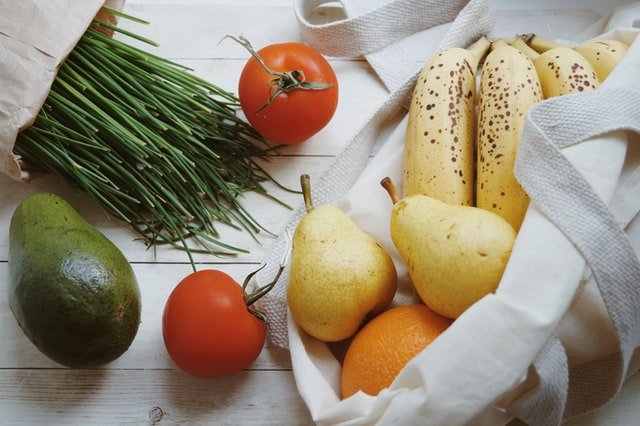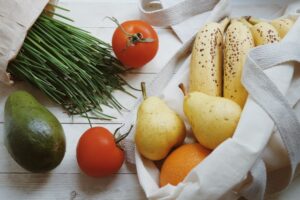Boosting Your Baby’s Brain Power: Essential Nutrients
- Published on:
- Last update: 09 October 2023

Numerous studies conducted in recent decades have revealed that many nutrients ignored in the diet but crucial for proper growth and development, especially brain development, should not be overlooked. An excellent example of one of these nutrients is docosahexaenoic acid, DHA. A polyunsaturated omega-3 fatty acid is found in the brain. It influences various aspects of brain functioning, including neurotransmission, commonly known as message transmission, and neurogenesis, commonly known as the process of developing new connections. Focus on children’s food as it is vital to their growth.
In addition, it is essential for the development of the structural components of the retina and the eye. Nearly half of the brain is composed of PUFAs – polyunsaturated long chains of omega-3 fatty acids. It is DHA that has the most significant importance among these PUFAs. Initial accumulation of DHA in the fetal brain occurs during pregnancy and continues during the development of the brain.
What if you wanted your child to do better in school? What if you wanted to raise the next Einstein? You should check their diet carefully. The correct “brain foods” help boost children’s brain development-enhancing their cognitive skills, memory, concentration, and memory. It is essential to feed your baby well since their food becomes them.
Best Sources of DHA in Children’s Food
DHA is found in breast milk, the best source for babies. Formula milk fortified with DHA is a good choice if you cannot breastfeed your baby due to any reason. When your child starts eating solid foods, however, you can start adding sources of DHA such as fatty fish such as sardines, salmon, herring, fish oil, meat, and eggs. Ensure that you are getting enough DHA in your diet to pass it onto the child breastfeeding.
You may find it challenging to get sufficient amounts of DHA if you are a vegetarian or vegan during pregnancy and breastfeeding. With your doctor’s approval, you can include these items in your diet, in addition to chia seeds and Brussels sprouts, broccoli, algal oil, hemp seeds, walnuts, flaxseeds, and perilla oil. These children’s food is a great source of DHA.
Even though supplements provide a good amount of DHA, it is still recommended to consult your doctor. Another thing to remember is that most DHA supplements contain fish oil, so check with your doctor before you take them, depending on your diet preferences.
Best food for children’s growth

On the other hand, a baby’s brain is a very efficient machine. It can process calories fast. So your baby will probably eat whatever you give it, and it will get all the nutrients it needs.
The best thing to feed your child is breast milk if you can. If you can’t, formulas are better than milk from cows or goats.
Beans and nuts are healthy for adults but don’t give them to children under seven years of age. The proteins in them are hard for babies’ little digestive systems to handle.
When your child goes to school, make sure that he eats a healthy breakfast every day before he leaves home. This will help him concentrate on his studies and learn better. Here are some of the best foods for children.
Apples and Plums
Sweets are often craved by kids, especially when they’re feeling sluggish. If your child eats sweets regularly, he will experience a sugar rush that negatively impacts his brain development. Give him apples and plums, which are lunchbox-friendly and contain quercetin, a powerful antioxidant that could prevent mental decline.
Try this:
You can add some apple slices to his tiffin box to make it more interesting. Sneak a plum into your meal for a sweet tooth-satisfying treat. Ensure that children’s food is both delicious and nutritious.
Beans
The saying goes that beans are suitable for the heart. In addition to the antioxidants, protein, complex carbohydrates, fibre, and vitamins and minerals contained in beans, they are also beneficial for the brain. They are also capable of boosting one’s energy. Taking kidney and pinto beans as part of a healthy diet will aid in the development and function of your brain. These beans contain more omega-3 fatty acids than other bean varieties.
Try this:
You can also use them to top salads, fill lettuce wraps, or make spaghetti a more nutritious meal by adding beans.
Nuts and Seeds
Don’t forget to feed your kid these nutrients, from walnuts to flax seeds to chia seeds. Your kid’s nervous system will function better and be healthier with these foods full of protein and essential fatty acids. Also found in them is vitamin E, an antioxidant that protects nerve membranes, thiamin, a helpful neurotransmitter in the brain, and glucose, which provides energy.
Try this:
Stir up a trail mix of nuts and seeds to your child and watch them enjoy it. Adding nuts and seeds to homemade granola bars will make them even more delicious. Children’s food should be packed with nutrients.
Whole Grains
Glucose, an energy source required by the brain, is found in whole grains such as bread and cereals. There is a constant need for glucose in the brain, and whole grains provide it in abundance. Whole grains also provide fibre, which provides the body with control over glucose release. The B-Vitamins in whole grains, which maintain a healthy nervous system, are also found in them.
Try This:
Select as many whole grains as possible to create a homemade wheat powder. Roti can be made from this powder.
Oats/Oatmeal
Kids love hot oatmeal because it is one of their favourite cereals and very nutritious grain. The first thing kids need in the morning is energy or fuel for their brains from oats. Children’s brains are stimulated all morning with oats packed with fibre. As well as vitamin B and vitamins E, oatmeal provides potassium and zinc, which are essential for proper brain and body function.
Try this:
Make quick and easy cookies or cupcakes with oatmeal and honey, which can be eaten with milk for breakfast.
Eggs
The yolks of eggs are packed with choline, which helps in memory development. Furthermore, eggs are packed with protein, which is beneficial for the body. Children benefit from the nutrients and protein they contain. There is no denying that eggs are highly versatile. Add them to sandwiches, wraps, and salads, and voila!
Try This:
Stir in salt and pasta seasoning when beating the egg. Ghee or olive oil are excellent ingredients for cooking an omelette. After they are cool, give them small pieces and let them eat them. Do not add salt to them if you have a baby younger than one year of age.
Fish
The omega-3 fats found in fish are vital for brain development and proper functioning. Additionally, they protect the brain from memory loss and decline in mental skills. Kids can benefit from eating enough of these fatty acids by improving their mental ability. If omega-3 is delivered to the brain in greater quantity, it will perform better, and kids will focus better.
Try this:
Cook fish, carrots, and leeks in the pressure cooker for two whistles with a good variety of spices. Then blend the mixture and feed it to your baby.
Veggies
Vegetables with rich, deep colours – such as tomatoes, sweet potatoes, pumpkins, carrots, spinach – provide the best antioxidant protection for the brain. Kale and spinach are full of folate and vitamins and are associated with a lower risk of becoming demented later in life. This superfood contains antioxidants and other components that support the growth of new brain cells.
Try this:
After being roughly chopped, three seasonal vegetables can be pressure-cooked for two whistles. If the mixture has cooled, add some cilantro and oregano to make a delicious soup for your baby.
Berries
There are antioxidants in fruits and vegetables that help prevent free radical damage to the brain and keep your child’s memory sharp. Also, they provide the body with ample Vitamin C, which enhances the immune system. Among the berries to look out for are strawberries, cherries, blueberries, and blackberries – the darker the colour, the more nutritional value.
Try this:
All you need is some yoghurt and a berry of your choice. Blend until it is smooth. Make sure you make enough dessert so that your baby will love it!
Note: Children’s food

From birth, a baby’s brain has already taken shape. In fact, by the time a baby is born, they have two-thirds of the nerve cells that they will have in their lifetime. The nutrition and food we give to babies during their early years significantly impact their overall development. These essential nutrients can shape their brains.
They can make children more intelligent. So it is not surprising that experts worldwide now agree that the first few years, including the most formative ones, are crucial—they will determine how intelligent a child will be later in life. The diet of your newborn is essential for his physical and emotional growth. The brain needs adequate nutrition to develop and emotional stimulation from caregivers and parents. The diet of both mother and baby should be healthy, focusing on brain-boosting foods that provide a variety of nutrients.
Order from Yummy Valley for Boosting Baby’s Brain Power.
Share this post:

